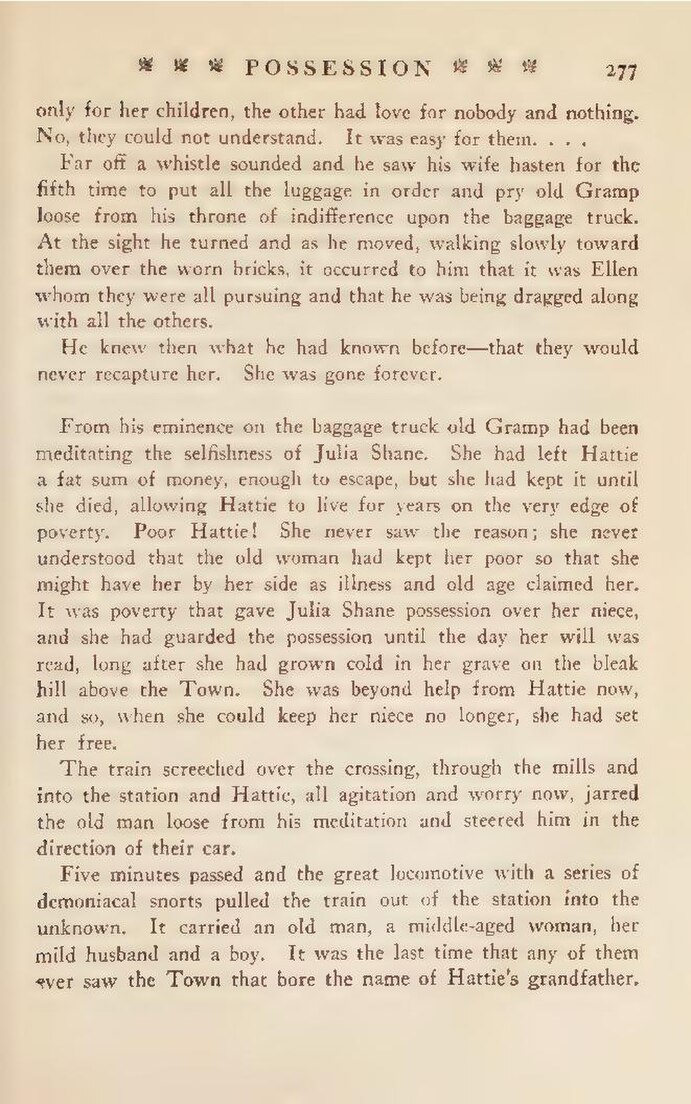only for her children, the other had love for nobody and nothing. No, they could not understand. It was easy for them. . . .
Far off a whistle sounded and he saw his wife hasten for the fifth time to put all the luggage in order and pry old Gramp loose from his throne of indifference upon the baggage truck. At the sight he turned and as he moved, walking slowly toward them over the worn bricks, it occurred to him that it was Ellen whom they were all pursuing and that he was being dragged along with all the others.
He knew then what he had known before—that they would never recapture her. She was gone forever.
From his eminence on the baggage truck old Gramp had been meditating the selfishness of Julia Shane. She had left Hattie a fat sum of money, enough to escape, but she had kept it until she died, allowing Hattie to live for years on the very edge of poverty. Poor Hattie! She never saw the reason; she never understood that the old woman had kept her poor so that she might have her by her side as illness and old age claimed her. It was poverty that gave Julia Shane possession over her niece, and she had guarded the possession until the day her will was read, long after she had grown cold in her grave on the bleak hill above the Town. She was beyond help from Hattie now, and so, when she could keep her niece no longer, she had set her free.
The train screeched over the crossing, through the mills and into the station and Hattie, all agitation and worry now, jarred the old man loose from his meditation and steered him in the direction of their car.
Five minutes passed and the great locomotive with a series of demoniacal snorts pulled the train out of the station into the unknown. It carried an old man, a middle-aged woman, her mild husband and a boy. It was the last time that any of them ever saw the Town that bore the name of Hattie's grandfather.
